Search results for: “plastic”
-
Plastic Mythbusters Quiz: Faktencheck zu Plastik in der Umwelt
Zum Plastik in der Umwelt finden sich in den Medien eine Menge verschiedener Angaben, doch viele davon sind nicht wirklich fundiert. Wir haben acht häufige Behauptungen einem Faktencheck unterzogen und in ein Quiz verwandelt. Probiert es aus! Das englischsprachige Web-Quiz Plastic Mythbusters eröffnet einen spielerischen Zugang: Mit dem Tool können Besucher*innen ihr Plastikwissen testen. Welche…
-
Is it true that bioplastics are a sustainable alternative to plastics since they degrade quickly in nature?
This claim is certainly false. Some of the materials called “bioplastics” are only biobased (made from renewable resources) but not biodegradable. Other materials called “bioplastics” are biodegradable but need very specific conditions to disappear quickly enough. However, these conditions are often not found in nature. If biodegradable plastics end up in the wrong place, they…
-
Is it true that we consume up to a credit card’s worth of plastic every week?
This claim is certainly false. It misrepresents the state of scientific research. It is true that plastics have been found in the human body. Microplastics can be ingested or inhaled. However, the average quantity of plastic which enters the human body is unclear. Scientific estimates still differ strongly, however there is no doubt that ‘one…
-
Is it true that most plastic waste is recycled, so using a lot of plastic is not a problem?
This claim is certainly false, and very far from reality. Just a small percentage of plastic waste is recycled and turned into material for new products. The majority of plastic waste is landfilled, incinerated (burnt) or ends up in the environment. This is one of the reasons why the current level of plastics consumption is…
-
Is it true that there’s a solid island of plastic in the ocean, visible from space?
This claim is certainly false. The claim of “plastic islands” in the ocean which are the size of countries or even continents is false. There’s no doubt that plastic pollutes the oceans, just as it does rivers, lakes, the soil and the air. However, plastic on the ocean surface is not concentrated enough to form…
-
Is it true that 80 percent of plastics in the ocean comes from land, 20 percent from the sea?
This claim is uncertain. We could find no credible scientific source to back up it up. The percentage of land- and sea-based plastic inputs into the ocean has not yet been calculated on a global level and therefore remains unknown. Scientific studies show that the ratio of land versus ocean-based plastics can differ strongly depending…
-
Is it true that 90 percent of the plastic in the oceans comes from 10 rivers in Asia and Africa?
You can read this frequently, but this claim is probably false. It misquotes the results of research published in 2017. In that study, scientists estimated how much plastic enters the sea from rivers around the world. Ten of these river systems carried most of the plastic. But plastic also reaches the sea through other ways,…
-
Is it true that microplastics are present in drinking water?
This is true, microplastics have indeed been identified in drinking water. However, knowledge of the scope and impacts on human health is scarce. To fully understand the occurrence and impacts of micro- and nanoplastics in drinking water for human health, more research is needed.
-
Is it true that by 2050 there could be more plastic than fish in the ocean?
This claim is highly speculative, and probably false. We do not know how much plastic is currently in the ocean. There is no scientific estimate for how much plastic will be in the ocean by 2050. It is also unclear how much fish will inhabit the ocean by 2050.
-
Letters on the Plastics Treaty
Ahead of the negotiations for a new global Plastics Treaty, I teamed up with group of scientists and co-authored two letters published in the journal Science calling for a cap on production and the full inclusion of chemicals. You can find our letters here (production cap) and here (chemicals). I also co-authored a letter to the…
-
Plastic pollution needs more than voluntary, optional or market-led solutions
Read our opinion essay at Environmental Health News
-
Book Review (Undark): Coming to Grips With the Plastic Crisis
In “Thicker Than Water,” journalist Erica Cirino probes the history of plastic pollution, along with possible solutions. Read my review >
-
Plastisphere Ep.9: The Discovery of Plastic Pollution
Plastic pollution seems to be a pretty new issue, right? In the past few years, the topic has been all over the media. But if you explore the history of science, it turns out that the problem really isn’t all that new.
-
Plastisphere Ep 8: Plastics in times of the coronavirus
Subscribe to feed For this episode, Anja tried something new: She asked listeners, researchers and podcasters to send her audio comments on what is happening now during the coronavirus pandemic. In this episode, you’ll hear some of the messages that arrived in her inbox the past weeks.
-
Are bioplastics a greener alternative to conventional plastics?
Confusion among terms like bioplastics, bio-based and biodegradable plastics makes it hard to discern — and make — the environmentally responsible choice. Article on Ensia, republished by Undark Magazine, The Revelator, The Wire, and others.
-
Plastisphere Ep.7: Confused about bioplastics?
What happens if bioplastics end up in the environment? In this episode, Anja takes a closer look at synthetic polymers marketed as more environmentally friendly. Can they contribute to a healthier planet, and in what way?
-
Plastisphere Ep.4: Plastic vs. the Climate?
Subscribe to feed Plastic pollution might be the most visible environmental issue we face today. But there are other kinds of pollution, and they are far harder to see. One of the most dangerous is the huge amount of greenhouse gases that we emit into the atmosphere. In this episode, Anja explores the connections between…
-
Plastisphere Ep.2: Plastic, the size of a virus
Subscribe to feed This time on Plastisphere, Anja goes on a lab tour with Alexandra ter Halle from Paul Sabatier University in Toulouse. The chemist and her team were the first to detect nanoplastic in the open ocean – plastic so small that it is comparable in size to a virus. What do we know…
-
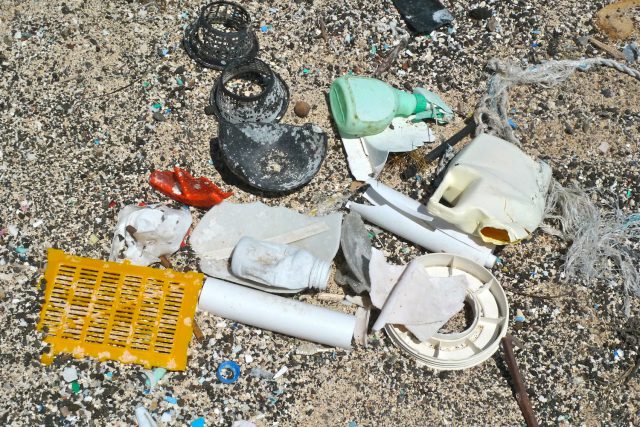
What will it take to get plastics out of the ocean?
From drones to filters to gigantic cleaning arrays, innovators are working to reduce the threat thousands of tons of trash pose to marine ecosystems. But how realistic are their plans, and how much of a difference will they be able to make? Read my article on Ensia An Earth Journalism Network Future Oceans Story, re-published…
-
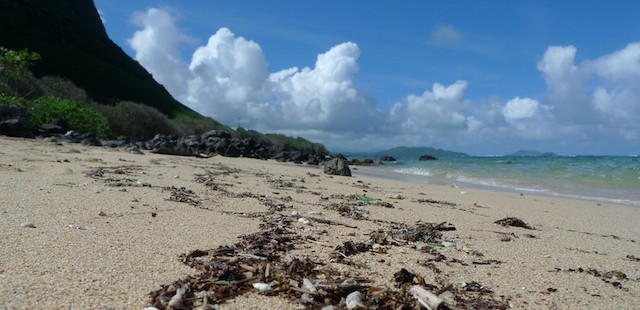
Deep-Sea Microplastics
— Report translated from German — According to a recent study, 270,000 tons of plastic waste are floating in the world’s oceans. That sounds like a lot, but the annual production of plastic is over a thousand times higher. So scientists are starting to wonder: Has the inventory of plastic in the oceans just scratched…
-

Nikolai Maximenko and Gisela Speidel on Plastic in the Oceans
In early 2011, I had the chance to meet with Nikolai Maximenko and Jan Hafner, oceanographers at the International Pacific Research Center in Hawai’i, and talk to them about the problem of marine debris and plastic trash in the oceans.
-
Live Radio Talk on Bioplastics
— Report translated from German — How sustainable are bioplastics? Can they save the oceans from marine litter? I investigated the issue from the supermarket to the plastic producer, and summed up my research in this live-talk for German radio:
-

Megan Lamson on Plastic Debris at Kamilo Beach, Hawai’i
In March 2011, I interviewed marine biologist Megan Lamson, who works for the Hawai’i Wildlife Fund and organizes beach cleanups at Kamilo Beach at Ka’alu’alu Bay. Some of these quotes were used in this German radio feature. Here are the snippets without German voice-over.
-
SCHIRN Podcast: Plastik von Pop bis Politik
Im SCHIRN PODCAST zur Ausstellung PLASTIC WORLD tauchen wir in die Welt der Kunststoffe ein – eine Welt voller unglaublicher Möglichkeiten, aber auch problematischer Nebenwirkungen. In den drei Folgen spreche ich mit Plastikexpert*innen aus verschiedenen Disziplinen, darunter Kuratorin Martina Weinhart, Bodenökologe Matthias Rillig, Tiefseeökologin Melanie Bergmann, Biologe Martin Wagner und Politikwissenschaftler Per-Olof Busch. Hörer*innen erhalten…
-
50 Jahre Forschung zu Plastik im Meer
Plastikkügelchen in den Fischmägen, Kunststoffabfälle im Meer: Das ist seit Jahrzehnten bekannt. Warum hat es so lange gedauert, bis das Problem von Politik und Öffentlichkeit ernst genommen wurde? Für dieses Radiofeature – eine gekürzte deutsche Fassung der einstündigen Folge des englischsprachigen Podcasts “Plastisphere” – habe ich mich über ein Jahr lang auf die Suche nach…
-
Plastisphere Podcast
Follow me on a journey into the world of synthetic polymers, their impacts on nature and ourselves, and the global quest to tackle plastic pollution. Listen here:
-
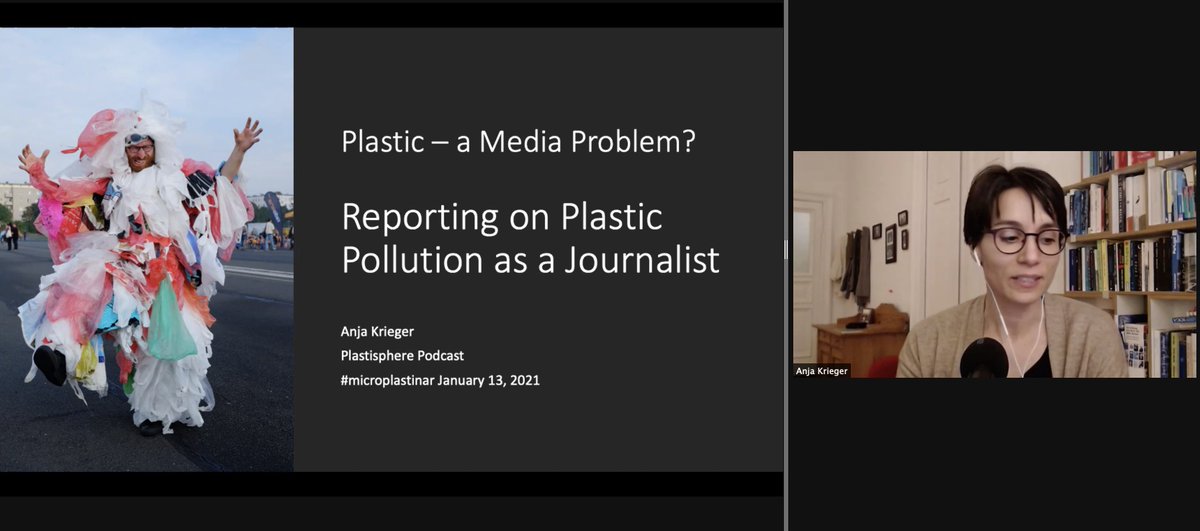
Talk at webinar series #microplastinar
How reliable are infographics and the figures and facts we find online? What are the current dynamics of the media landscape? And how could they become more sustainable? These are some of the questions I covered in a talk on plastics in the media for the Limnoplast plastic webinar series. I highly recommend to check…
-
Wissenschaftsgeschichte
Eine Zeitreise, 50 Jahre in die Vergangenheit, zu den Anfängen des Plastikmüllproblems – entstanden mit Unterstützung des Max-Planck-Institut für Wissenschaftsgeschichte und zu hören im Deutschlandfunk Kultur und auf Englisch bei RiffReporter.
-
Plastisphere Ep.10: Chatting about Individual Impact
Subscribe to feed When it comes to solving the issue of plastic pollution, who would you say is responsible? Is it individuals like you and me, is it the corporations that produce plastics or products made from it, or is it the government with its rules and regulations?
-
Hi there!
I’m an environmental researcher, storyteller and podcaster. #plasticpollution I’ve been reporting on plastics for over a decade in German and English, and offer talks, articles and fact-checks. Don’t miss my independent podcast series on the topic: Plastisphere. #radio and #podcasts I create stories from voices and sounds. My narrative podcasts are among the top 1.5-2.5% of global audio…
-
Plastisphere Ep.6: Traces in the soil
Subscribe to feed Plastic pollution also affects the soil, the thin layer of ground that feeds all of us. For a long time, this terrestrial plastic has been overlooked. Now scientists are starting to investigate the extent and impacts of plastic pollution in the soil and in the ground. What do we know about them?
-
Plastisphere Ep.5: Message from Midway
Subscribe to feed Chris Jordan has taken some of the most iconic pictures to shape our image of plastic pollution. He traveled to Midway Island on his quest to photograph the evasive “Great Pacific Garbage Patch”, which is really a soup of microplastics. There, he documented albatross chicks who had died with their guts full…
-
Plastisphere Ep.3: Waste picker economies
Subscribe to feed Anja calls up Dr. Jenna Jambeck and Amy Brooks from the University of Georgia on a research trip in Vietnam. In many Asian countries, a booming economy is coupled with more people using throw-away items. Informal recyclers and waste pickers who have traditionally sorted the waste cannot keep up. But, like millions…
-
Plastisphere Ep.1: Welcome to the Plastisphere
Subscribe to feed In this introduction to the Plastisphere podcast, Anja takes the listener on a journey back in time, from a remote plastic beach on the Big Island of Hawaii to the factory of a big chemical producer making bioplastics. She shares what she has learned about the issue of plastic pollution in the…
-
In Schleswig for Undark
Schleswig is a small town in the North of Germany. This spring, a major plastic leak there sparked a debate in Germany: Can a circular economy include shredding food waste and packaging together? For Undark, I went to Schleswig to find out what had happened:
-
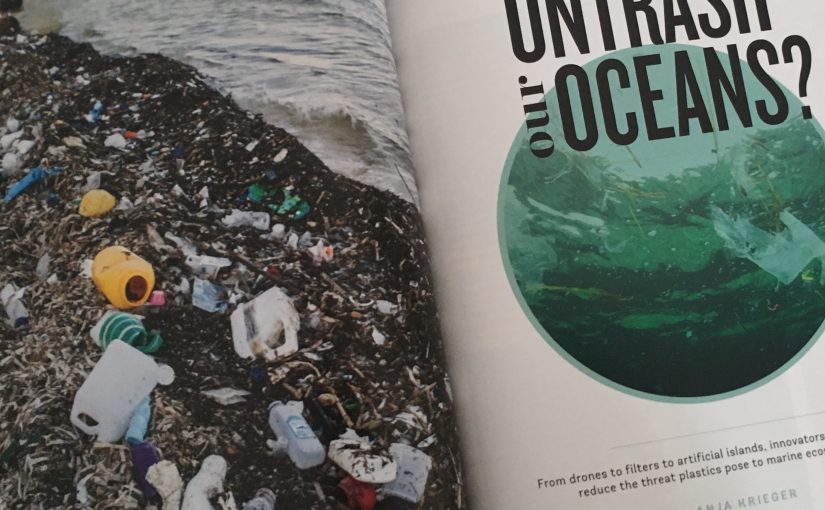
Ensia Best of Year
My long-read “What will it take to get plastics out of the oceans?” featured in the “Ensia Best of Year” print edition (online on Issuu)
-

Spurensuche in der Tiefsee
Teile unseres Plastikmülls sammeln sich am Boden der Meere – das haben Forscher schon länger befürchtet. Nun sind sie in Proben aus dem Sediment der Tiefsee tatsächlich fündig geworden. Ich spreche darüber mit Richard Thompson, Mitautor der Studie.
-
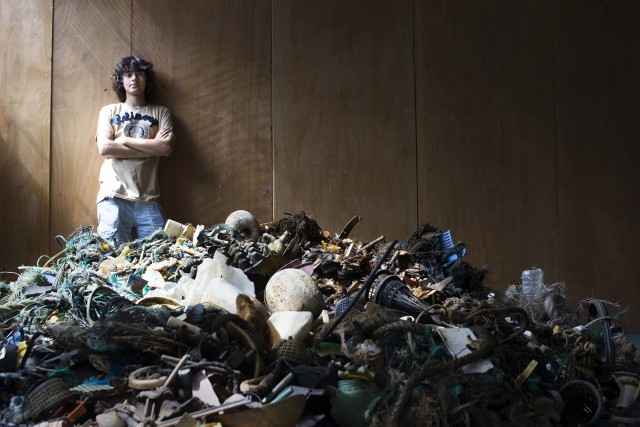
Der Müllmann der Meere?
Boyan Slat ist 18 Jahre alt, als er im Oktober 2012 auf die Bühne tritt. Schlaksig steht er in der Aula der Technischen Universität Delft, ein bisschen nervös und die langen braunen Haare tief im Gesicht. In fließendem Englisch präsentiert der junge Niederländer auf der TEDxDelft-Konferenz seine Idee: Eine Plattform, die den pazifischen Ozean vom…
-
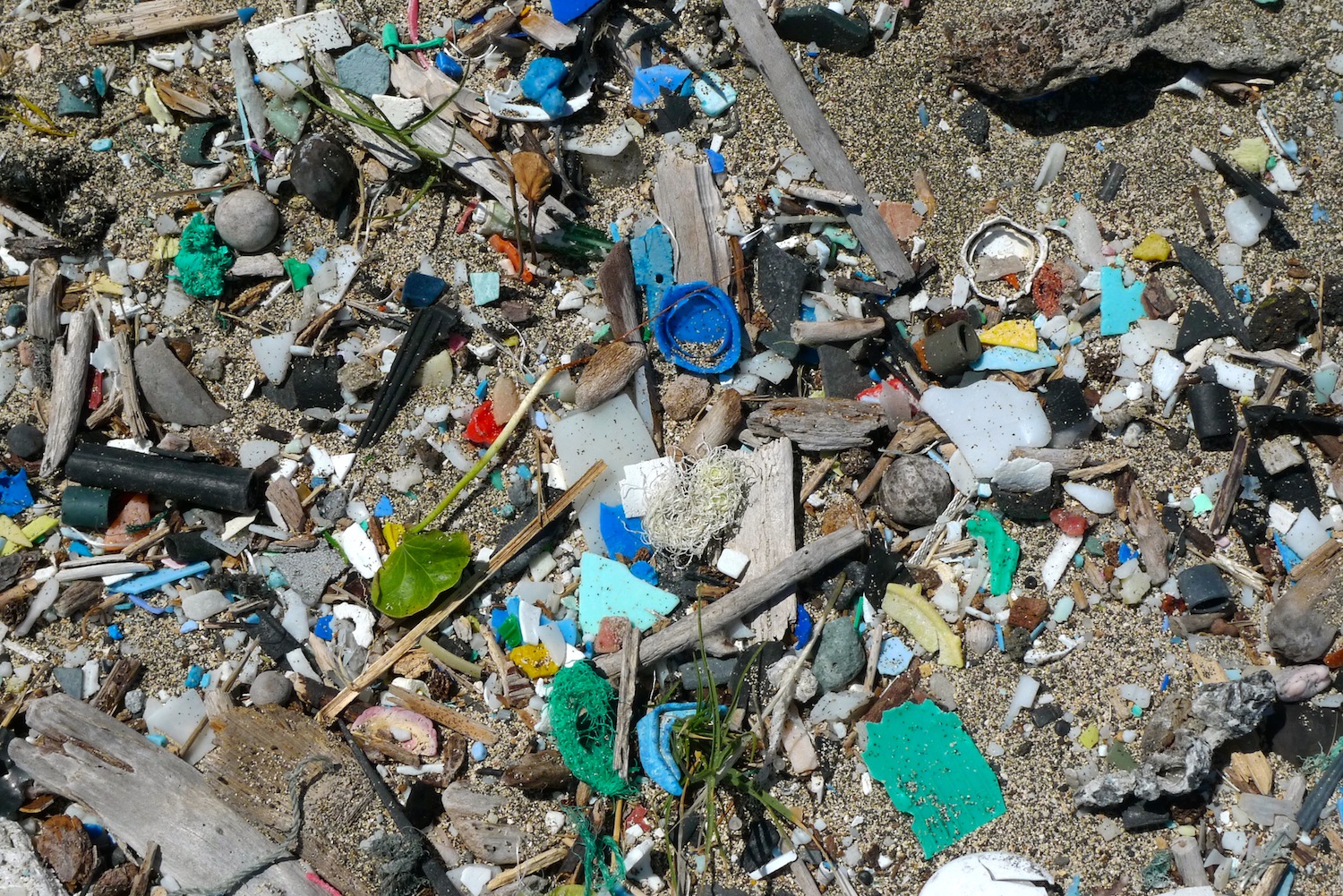
Cleaning the Oceans
— Report translated from German — “Recycled Island creates a self-sustaining habitat floating in the ocean. The urban area houses around five thousand people. Agriculture supports a self-sustaining environment, together with seaweed cultivation.… Natural resources are used to provide food, energy, transport, and comfort.… The entire island is constructed from plastic trash that floats in…
-

Manche Zahlen sind wie Plastik
Manche Zahlen sind wie Plastik: Leicht, praktisch und ewig haltbar. Zum Beispiel diese: Über 6,4 Millionen Tonnen Abfall landen jährlich in den Weltmeeren. Das ist eine Angabe aus den 70ern, die bis heute recycelt wird, wenn es um Plastikmüll im Meer geht
-
Kippen, Deckel, Plastiktüten
Zwei Filmtipps und eine Ausstellung: Zu den Folgen unserer Wegwerfgesellschaft solltet ihr euch unbedingt die Arte-Doku “Plastik: Der Fluch der Meere” ansehen. Die Autoren haben weltweit Forscherinnen und Forscher besucht, die untersuchen, wie sich Kunststoff auf das Meer und seine Lebewesen auswirkt. Mit der Besatzung von 5 Gyres sind sie durch den südlichen Pazifik gesegelt,…
-
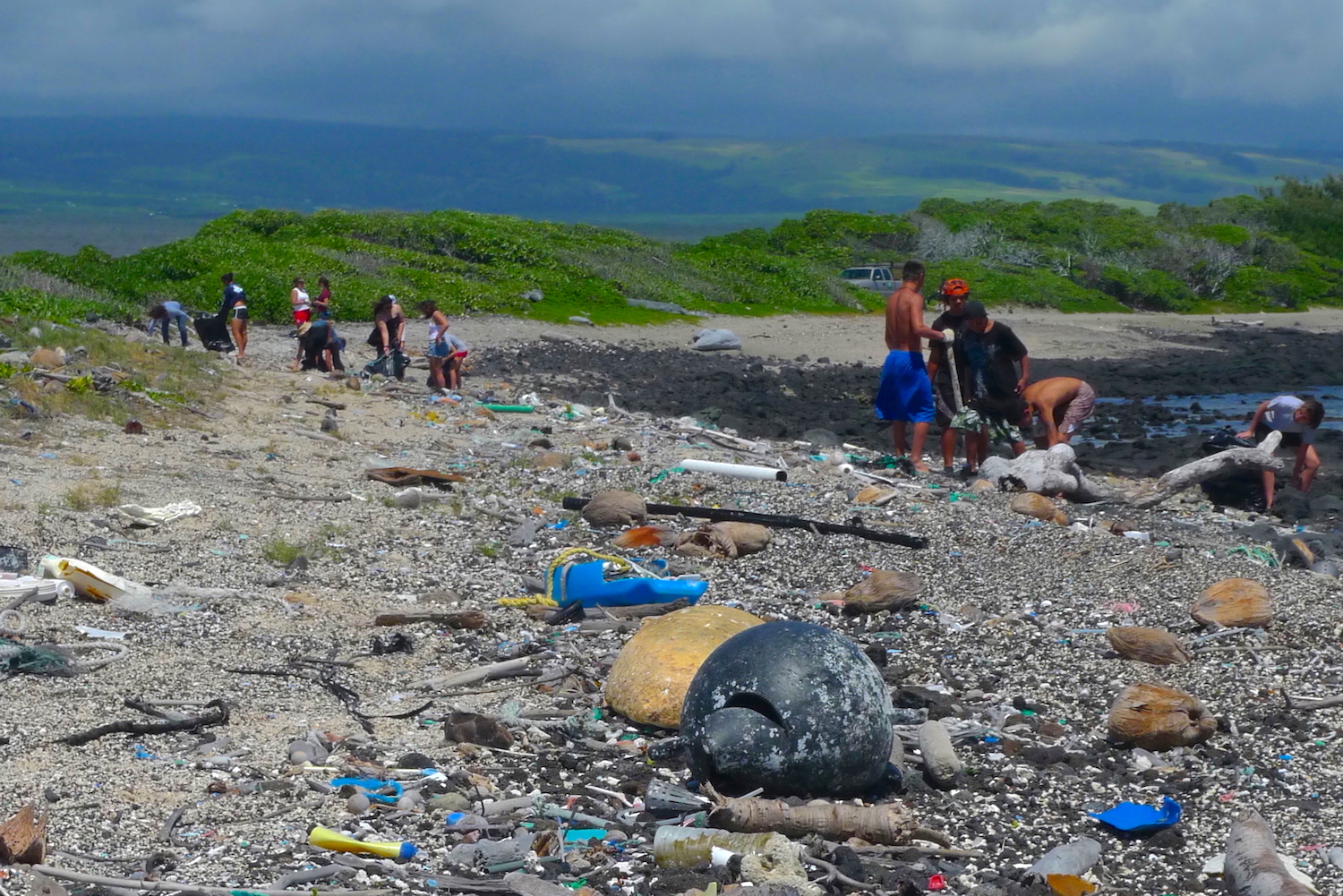
Der Plastikstrand von Hawaii
Das Meer treibt die Reste der Wohlstandsgesellschaft wieder an Land. Sogar auf den Inseln von Hawaii ist der Sand von winzigen Kunststoffteilchen durchsetzt. Während Umweltschützer tapfer gegen die Plastikflut kämpfen, versuchen Ozeanografen zu verstehen, wie der Müll die Meere durchquert. Beitrag nachlesen Deutschlandradio Kultur | Weltzeit | 7.7.2011 | 15 Min. (Audio nicht mehr online verfügbar)…
-

Bioplastik zum Selberkochen
Es ist gar nicht so schwer, kompostierbaren Kunststoff herzustellen. Das geht sogar in der heimischen Küche. Doch ist das wirklich die Lösung?
-
Short bio
I work as a communications consultant with Ahnen&Enkel in Berlin, Germany. As a storyteller and podcaster, I have a decade of experience as a journalist and science writer, and previously reported for radio, online and print media on the environment and science in German and English. I am the co-creator of Life in the Soil,…